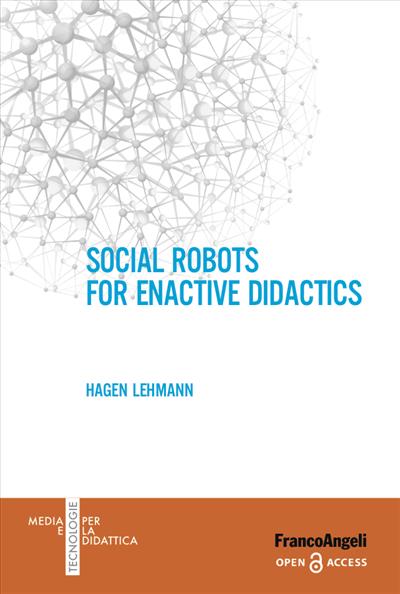
Social Robots for Enactive Didactics
The use of robotic technology in education over the past 25 years has primarily focused on STEM education in schools, and on computer science and engineering classes in undergraduate courses at universities. The increasing technological developments in socially evocative robotics has started to change this, and in recent years has led to an increasing number of social robotic platforms is being integrated into classroom settings. In this book we will illustrate how current social robotic technology can be used to shape future learning from the perspective of an enactive approach to didactics. We will discuss the roles social robots can play for reinforcing different types feedback mechanisms between teacher and students and answer some of the central questions about the grounding of social robots in didactic theory.
Open Access
0,00
Open Access
0,00
Pagine: 128
ISBN: 9788835112341
Edizione:1a edizione 2020
Codice editore: 11096.11
Informazioni sugli open access




